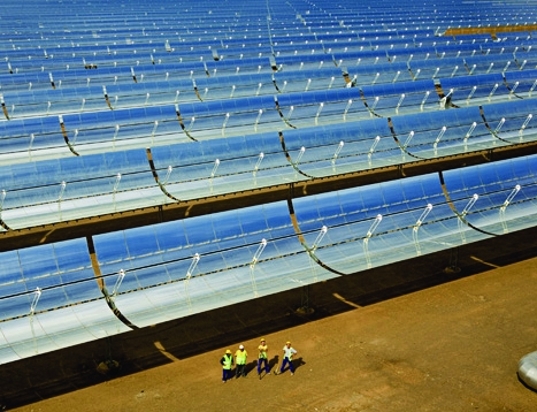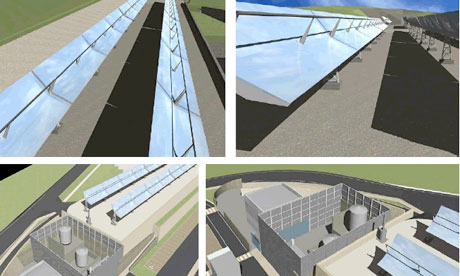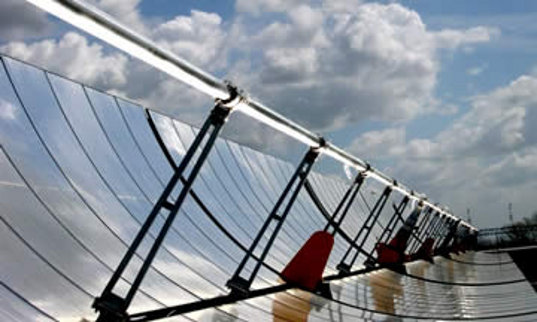The first molten salt solar station operating around the clock
As you know, solar energy is already cheaper to produce than nuclear . But she still has a number of problems, and one of them is the "intermittent" nature of production. In other words, a solar station does not do any good at night. But this defect can also be fixed.
A month ago, near Syracuse (Italy) , the world's first concentrated solar power (CSP) station was launched , which operates around the clock on molten salt.

Here, instead of photocells, parabolic mirrors are used, focused on pipes with salt, which can heat up to 550 ° C. The molten salt enters the storage tank, boils water, and the steam turns the turbines.

The idea of such a system belongs to Archimedes, who allegedly set fire to Roman ships with the help of parabolic mirrors during the siege of Syracuse (214-212 BC). Not surprisingly, the modern station near Syracuse was named Archimede.

Several power plants of this type already exist in the USA and Spain, but some use oil as a heat accumulator, while others (salt) do not work at night. The Archimede station in Italy is the first to operate on salt around the clock.
The construction of a five-megawatt station cost 60 million euros. Mirrors occupy an area of 3 hectares, the length of pipes with salt is 5400 m.
A month ago, near Syracuse (Italy) , the world's first concentrated solar power (CSP) station was launched , which operates around the clock on molten salt.

Here, instead of photocells, parabolic mirrors are used, focused on pipes with salt, which can heat up to 550 ° C. The molten salt enters the storage tank, boils water, and the steam turns the turbines.

The idea of such a system belongs to Archimedes, who allegedly set fire to Roman ships with the help of parabolic mirrors during the siege of Syracuse (214-212 BC). Not surprisingly, the modern station near Syracuse was named Archimede.

Several power plants of this type already exist in the USA and Spain, but some use oil as a heat accumulator, while others (salt) do not work at night. The Archimede station in Italy is the first to operate on salt around the clock.
The construction of a five-megawatt station cost 60 million euros. Mirrors occupy an area of 3 hectares, the length of pipes with salt is 5400 m.
